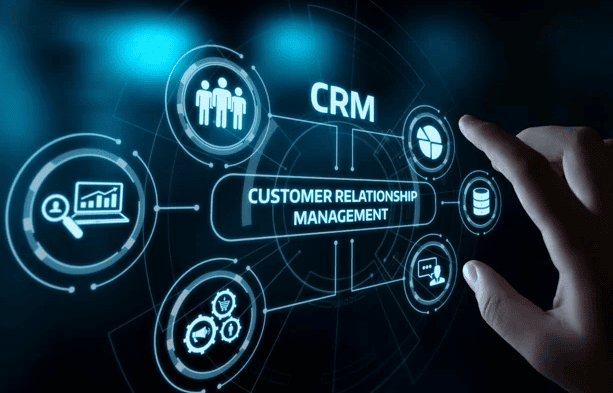Customer Relationship Management (CRM) | Crash Course for UGC NET Commerce PDF Download
Overview of Customer Relationship Management (CRM)
Customer Relationship Management (CRM) is an essential strategy adopted by businesses to effectively manage and nurture customer relationships. It involves utilizing various practices, strategies, and technologies to engage with customers throughout their entire journey with the company.
What is Customer Relationship Management (CRM)?

- Customer Relationship Management (CRM) involves how businesses manage and understand customer interactions, utilizing various tools and methods. The primary aim is to enhance customer satisfaction, retention, and boost sales.
- CRM systems aggregate customer data from multiple sources like company websites, phone calls, emails, and social media. This data enables companies to gain insights into customer preferences, purchase behavior, and demographics. Consequently, it aids staff in delivering improved services and resolving customer issues more effectively.
Types of CRM
There are several types of CRM systems, each focusing on different aspects of customer management:
- Sales CRM: Designed to increase sales and expand customer bases by managing the sales process, from lead tracking to deal closure.
- Marketing CRM: Aimed at developing, automating, and monitoring marketing campaigns, particularly online and via email. It helps identify target customer groups and refine strategies with real-time data and A/B testing.
- Service CRM: Integrates customer service with sales and marketing, offering support through various channels like chat, mobile, email, and social media to ensure responsive service.
- Collaborative CRM: Focuses on sharing customer data across different departments and teams to enhance communication and collaboration.
- Small Business CRM: Tailored for smaller enterprises, these CRMs are user-friendly, cost-effective, and designed to manage fewer customers.
Benefits of CRM
Implementing CRM practices offers numerous benefits to businesses, including:
- Enhanced Customer Relationships: Provides a comprehensive view of customer interactions and preferences, improving understanding and anticipation of needs.
- Improved Customer Service: Enables more personalized and timely support, leading to higher customer satisfaction.
- Increased Sales and Revenue: Helps in identifying and nurturing leads, managing sales opportunities, and streamlining the sales process.
- Better Marketing Campaigns: Offers insights into customer behavior and preferences for more targeted and effective marketing efforts.
- Increased Efficiency and Productivity: Centralizes customer data and automates routine tasks, allowing teams to focus on more valuable activities.
- Data-Driven Decision Making: Provides valuable data and analytics for informed decision-making regarding customer trends, sales performance, and marketing effectiveness.
- Enhanced Customer Loyalty: Supports the development of long-term customer relationships through exceptional service and personalized interactions.
CRM Strategy
Developing an effective CRM strategy involves several key steps:
- Define Your Goals and Mission: Set clear business objectives that align with your company's vision and ensure the CRM strategy supports these goals.
- Identify Your Buyer Persona and Target Audience: Create a detailed profile of your ideal customer to tailor the CRM strategy to their needs and preferences.
- Create a Customer Journey Map: Outline the customer journey from awareness to loyalty, identifying key touchpoints and opportunities for improvement.
- Utilize AI: Integrate AI solutions to enhance customer engagement, provide sales insights, and automate processes.
- Improve Communication through Data Integration: Combine data from various sources for a unified view, facilitating faster, more meaningful customer interactions and better team collaboration.
Benefits for Businesses
A well-implemented CRM strategy can significantly benefit businesses by:
- Enhancing customer service with detailed information about past interactions and purchases.
- Analyzing trends and insights through customer data.
- Automating routine tasks to increase efficiency and streamline operations.
CRM and eCommerce
CRM is crucial for eCommerce success as it helps businesses manage customer interactions and adapt to their needs across various channels. The rise of eCommerce has increased customer expectations for personalized experiences and prompt support. Effective CRM strategies help businesses meet these expectations, drive customer loyalty, and boost revenue by providing tailored shopping experiences and efficient service.
|
157 videos|236 docs|166 tests
|
FAQs on Customer Relationship Management (CRM) - Crash Course for UGC NET Commerce
| 1. What is Customer Relationship Management (CRM)? |  |
| 2. What are the types of CRM? |  |
| 3. What are the benefits of CRM? |  |
| 4. How can businesses benefit from implementing CRM? |  |
| 5. How does CRM integrate with eCommerce? |  |
















